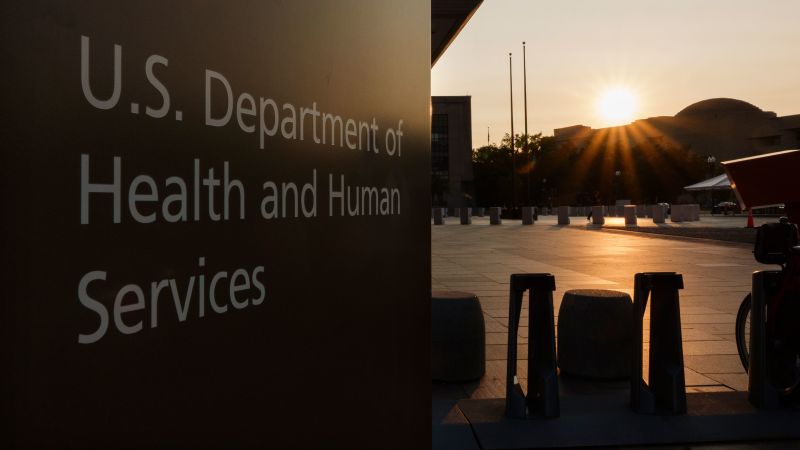In a significant move aimed at rectifying lapses within the organ donation system in the United States, the Department of Health and Human Services (HHS) announced an initiative on Monday following a troubling federal investigation. This investigation notably highlighted one organization in Kentucky that initiated the organ procurement process for individuals who were potentially not deceased. Such findings have sparked serious ethical concerns and calls for reforms within the organ donation framework.
On Tuesday, a House subcommittee convened to scrutinize the issues surrounding organ donation safety. Lawmakers sought to determine the steps that procurement and transplant organizations would take to restore public confidence in a system that heavily depends on voluntary donations from individuals, often initiated during the process of obtaining a driver’s license. Currently, approximately 170 million Americans have registered as organ donors; however, the demand for transplantable organs exceeds availability. There were about 48,000 organ transplants performed last year, yet over 103,000 individuals remain on waiting lists. It is reported that about 13 people die daily in the U.S. while waiting for a transplant, according to the Health Resources and Services Administration (HRSA).
The impetus for HHS’s reform initiative arose from a comprehensive investigation conducted by HRSA, which identified significant concerns surrounding instances of incomplete organ donations. This refers to situations where the procurement process began but the donation did not occur for various reasons. Dr. Raymond Lynch, who oversees HRSA’s Organ Transplant Branch, addressed the subcommittee about the alarming situation in Kentucky, assuring that it would not be tolerated moving forward. Lynch acknowledged the critical need to earn public trust, stating, “Trust is earned. It’s not to be expected. It’s earned every day.”
The procedural shortcomings highlighted by the federal investigation involved the Kentucky Organ Donor Affiliates, the organization responsible for managing organ donations in Kentucky and parts of Ohio and West Virginia. This organization, now known as Network for Hope after merging with another group, was scrutinized for managing over 351 donor cases, with more than 100 showing troubling attributes. In an alarming twist, at least 28 cases were identified where patients may not have been deceased when the organ procurement commenced, presenting serious ethical dilemmas.
House subcommittee Chair Dr. John Joyce expressed outrage at the “horrific reports” emerging from the investigation, underlining the necessity for comprehensive oversight and future investigations. HHS Secretary Robert F. Kennedy Jr. shared a sense of urgency during the hearing, indicating that improper practices had allowed the donation process to start while patients exhibited signs of life. He asserted that accountability for organ procurement organizations is imperative, emphasizing that every potential donor’s life should be treated with the sanctity it deserves.
Network for Hope has responded to the investigation with a statement reaffirming its commitment to transparency and proper compliance with regulatory standards. CEO Barry Massa indicated that the organization is diligently reviewing the concerns raised and is eager to address any necessary adjustments. Massa further asserted that patient safety remains the primary concern, emphasizing recent changes within the organization to improve efficiency and communication in the organ donation process.
The investigation revealed a pattern of failures related to adherence to best practices, lack of respect for familial wishes, and inadequate collaboration with medical teams, suggesting issues within the organizational culture. HRSA’s findings implied systemic dysfunctions, pointing to a larger failure to recognize and respond appropriately to substandard patient care. As a result, HHS is advocating for sweeping reforms across the organ procurement landscape, underscoring the necessity of comprehensive changes to better safeguard potential organ donors.
The distressing issues faced in Kentucky are not isolated, as HRSA reported potential “similar patterns” in other organizations nationwide. Lynch confirmed ongoing investigations targeting cases outside Kentucky and highlighted that the agency would soon release a report focusing on patient safety within the organ donation system, reinforcing the need for utmost diligence and ethical consideration in this critical medical domain.
Currently, Congress is actively pursuing solutions to reinforce the U.S. organ donation system. The recent hearing aimed to draw lessons from the federal investigation and identify necessary measures to enhance the operational framework. Concerns linger around the ethical implications of organ procurement from patients who exhibit signs of not being completely brain-dead, especially considering the growing prevalence of donation after circulatory death (DCD). Critics question this practice, advocating for more stringent guidelines to ensure ethical practices in organ donation.
In summary, the ongoing scrutiny of the abused organ donation system reveals a critical need for organizational reforms and proactive measures to prevent future lapses. The collaboration between lawmakers, health officials, and organ procurement organizations will be key in restoring public confidence and ensuring that every donation scenario is handled with the utmost care and respect for the individuals involved.












